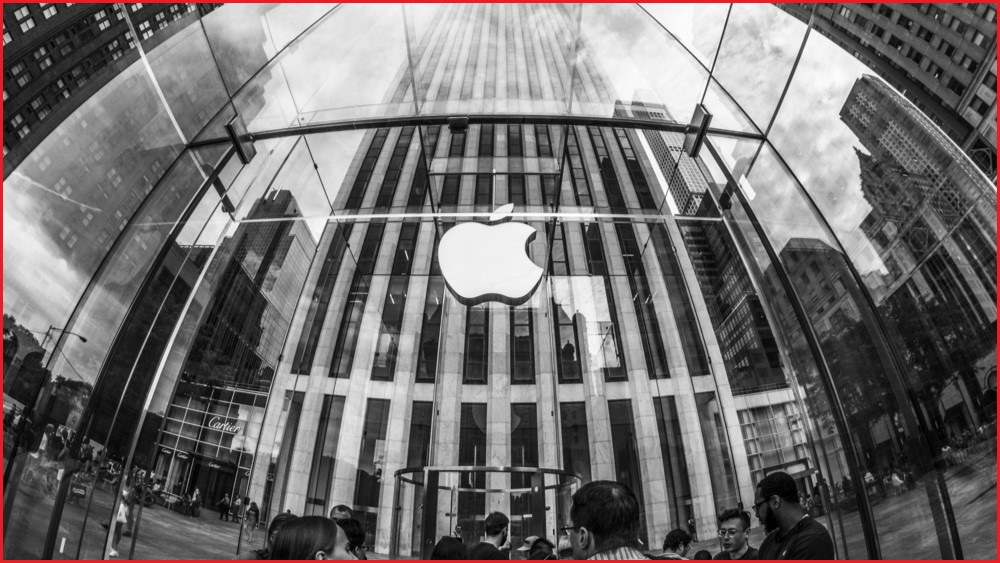Apple has been accused of the “systematic invasion of employee privacy” and the monetisation of the personal data of its workers in a lawsuit launched by an employee of the tech giant.
Amar Bhakta filed the lawsuit in California last week, alleging that the tech company is breaching the state’s laws by snooping on the personal and work devices of its workers.
In response to the filing, a spokesperson for Apple said the company “strongly disagrees” with the claims in it and that they “lack merit”.
The lawsuit says that all Apple workers are required to use Apple devices, software and services as part of their job, whether on a work iPhone or a personal one.
It claims that workers are “actively encouraged” to use their own personal device for work purposes.
The data on these devices, including emails, photos, videos and notes are then “subject to search by Apple”, the lawsuit alleges.
“Apple requires employees to waive their inalienable right to privacy and autonomy and to patronise Apple, as a condition of their employment,” the lawsuit said.
“Whether owned by Apple or the employee, these devices collect and use the valuable personal data of Apple employees, and those with whom they interact, when the employees are engaged in the ‘life’ side of the work-life balance.”
A 'panopticon'
The filing likens the Apple ecosystem to a prison for its employees.
“For Apple’s employees, the Apple ecosystem is not a walled yard,” it said.
“It is a prison yard. A panopticon where employees, both on and off duty, are ever subject to Apple’s all-seeing eye.”
Bhakta joined Apple in mid-2020 as a digital ad tech / operations manager.
In doing so, he was required to “waive his and his family’s unwaivable privacies of life as a condition of initial and continued employment”, the lawsuit alleges.
It says that as a condition of employment, Apple staff must agree that the company can access, search, monitor and archive all data and messages sent, accessed, viewed or stored on the device used for work, and conduct physical, video or electronic surveillance.
“Apple subjects its employees to surveillance and forces their patronage through the monetisation of employee personal data as a condition of their employment,” it said.
“It is neither possible nor practical for Apple employees to avoid Apple’s surveillance, collection or use of their private life data.”
Bhakta’s lawsuit also alleges Apple has engaged in illegal clawback policies and that it banned him from engaging in public speaking in his area of expertise, digital advertising.
It also said that Apple required him to remove and edit unprotected information about his working conditions and work at Apple from his LinkedIn profile.
Apple fights back
In a statement provided to The Verge, a spokesperson for Apple said the company strongly rejects the claims in the lawsuit.
“At Apple, we’re focused on creating the best products and services in the world and we work to protect the inventions our teams create for customers,” the spokesperson said.
“Every employee has the right to discuss their wages, hours and working conditions and it is part of our business conduct policy, which all employees are trained on annually.
“We strongly disagree with these claims and believe they lack merit.”
The surveillance of workers has become a hotly contested issue in the wake of the COVID-19 pandemic and huge rise in popularity in working from home.
There are significant concerns about the rise in employee surveillance with employers pushing for more powers to ensure workers are remaining efficient when not in the office.
This has seen employers and employees engage in a game of cat and mouse, with both using increasingly sophisticated technologies.
This includes the use of “bossware” tools that can surveil remote workers, and fake productivity tools, such as “mouse-mover” software, that can be used by employees to pretend to be working.
A report found earlier this year that the large majority of Australians think the use of facial recognition technology in the workplace is a bridge too far, with just 16.4 per cent of people surveyed saying that employers should be allowed to use these tools to monitor employee productivity.










